Born in a family of rather modest means, Whitton grew to become the first female mayor of the City of Ottawa, a tireless defender of the less fortunate and a relentless crusader for professional standards of juvenile immigrants and neglected children. She was the driving force behind the Canadian Council on Child Welfare and was in high demand, across North America, as a lecturer on social programs. Charlotte Whitton was a study in the modern woman.
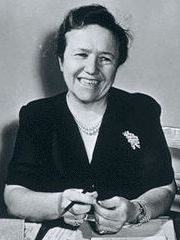
She attended Queen’s University, where she studied for a Master of Arts and played hockey.In November 1950, she entered Ottawa municipal politics winning a seat on the Board of Control (now city council). The newly elected Mayor of Ottawa, Grenville Goodwin, died in office and Whitton was appointed to succeed him for the remaining 14 months of the mandate. She was elected mayor in 1952, 1954, 1960 and 1964 and later served as an alderman until 1972.
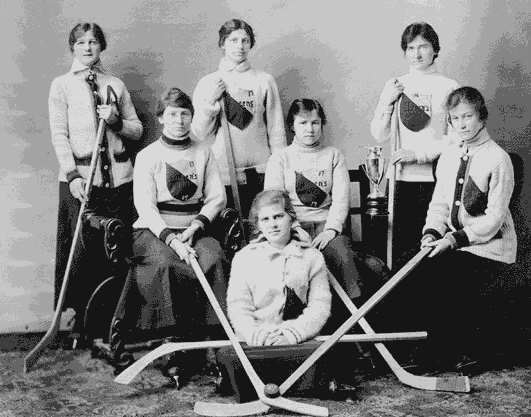
While Whitton was a power house in social welfare and politics she is best known for her immortal quote:
Whatever women do they must do twice as well as men to be thought half as good. Luckily, this is not difficult.
She was also the author of lesser-known, but still great, quotes such as:
“Turn your face to the sun and the shadows fall behind you.”
“When one must, one can.”
and my favorite,
“It’s how you deal with failure that determines how you achieve success.”
Charlotte Whitton did not shy away from controversy. During the Flag Debate in 1964 she confronted Lester Pearson over his choice of three maple leafs for the flag.
She declared:
… Pearson’s design as a ‘white badge of surrender, waving three dying maple leaves’ which might as well be ‘three white feathers on a red background,’ a symbol of cowardice. ‘It is a poor observance of our first century as a nation if we run up a flag of surrender with three dying maple leaves on it,’ she said.
For Whitton, the Red Ensign, with its Union Jack and coat of arms containing symbols of England, Scotland, Ireland and France (or a similar flag with traditional symbols on it) would be a stronger embodiment of the Canadian achievement in peace and war. She lost the battle but made her mark.
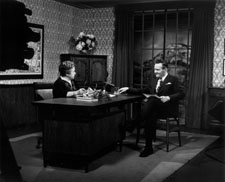
During her time as Mayor she pioneered the communications of city politics by hosting her own TV program and writing a column in the local paper.
Never married, Whitton lived for 32 years with her companion, Margaret Grier, whom she had met at Queen’s University. Grier died in 1947 at the age of 55 years.
Charlotte Whitton died on January 25, 1975 and was laid to rest in the Thompson Hill Cemetery in Renfrew.
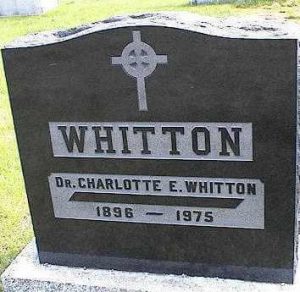
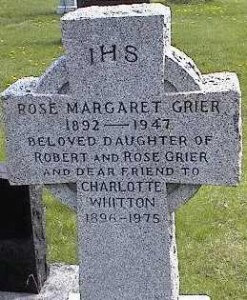
Erica Zwick
Is there a reason you neglected to mention her blatant antisemitism and racism?
Whitton had many remarkable achievements but her story is framed by current controversy over some of her actions.
She has been accused in print of espousing, “a ‘scientific’ racism that viewed groups such as Jews and Armenians as ‘undesirable’ immigrants.” (Open Your Hearts: The Story of the Jewish War Orphans in Canada by Fraidie Martz)[9]
In 1938, she attended a conference in Ottawa to launch the Canadian National Committee on Refugees (CNCR). She showed opposition to some of the other attendees’ arguments. A common belief is that she was directly opposed to Jews and in particular Jewish children. Oscar Cohen of the Canadian Jewish Congress is reported to have said she “almost broke up the inaugural meeting of the congress on refugees by her insistent opposition and very apparent anti-Semitism.”[10] This sentiment is countered by the official record which includes notes from her presentation, including “lobby the government to initiate a long-term refugee program …” and an interest in protecting all at risk, “particularly Hebrews in the Reich and in Italy.”[11]
According to the Canadian Jewish Congress: “Certainly in the course of the Second World War and the Holocaust, she was instrumental in keeping Jewish orphans out of Canada because of her belief that Jews would not make good immigrants and were basically inferior.”[12]
As Mayor in 1964, she declined Bertram Loeb’s $500,000 donation to the City’s Ottawa Civic Hospital. The official rationale was that the city could not afford to keep the centre operating.[11] The sentiment exists that she “simply didn’t want the name of a Jewish family on an Ottawa hospital building.”.[10]
According to Patricia Rooke, Whitton was a “complete anglophile” who opposed all non-British immigration to Canada. “Charlotte Whitton was a racist,” according to Rooke. “Her anti-Semitism, I think, was the least of it. She was quite racist about the Ukrainians, for example. She really didn’t like the changing character of Canadian society.”[12]
I’m just curious.